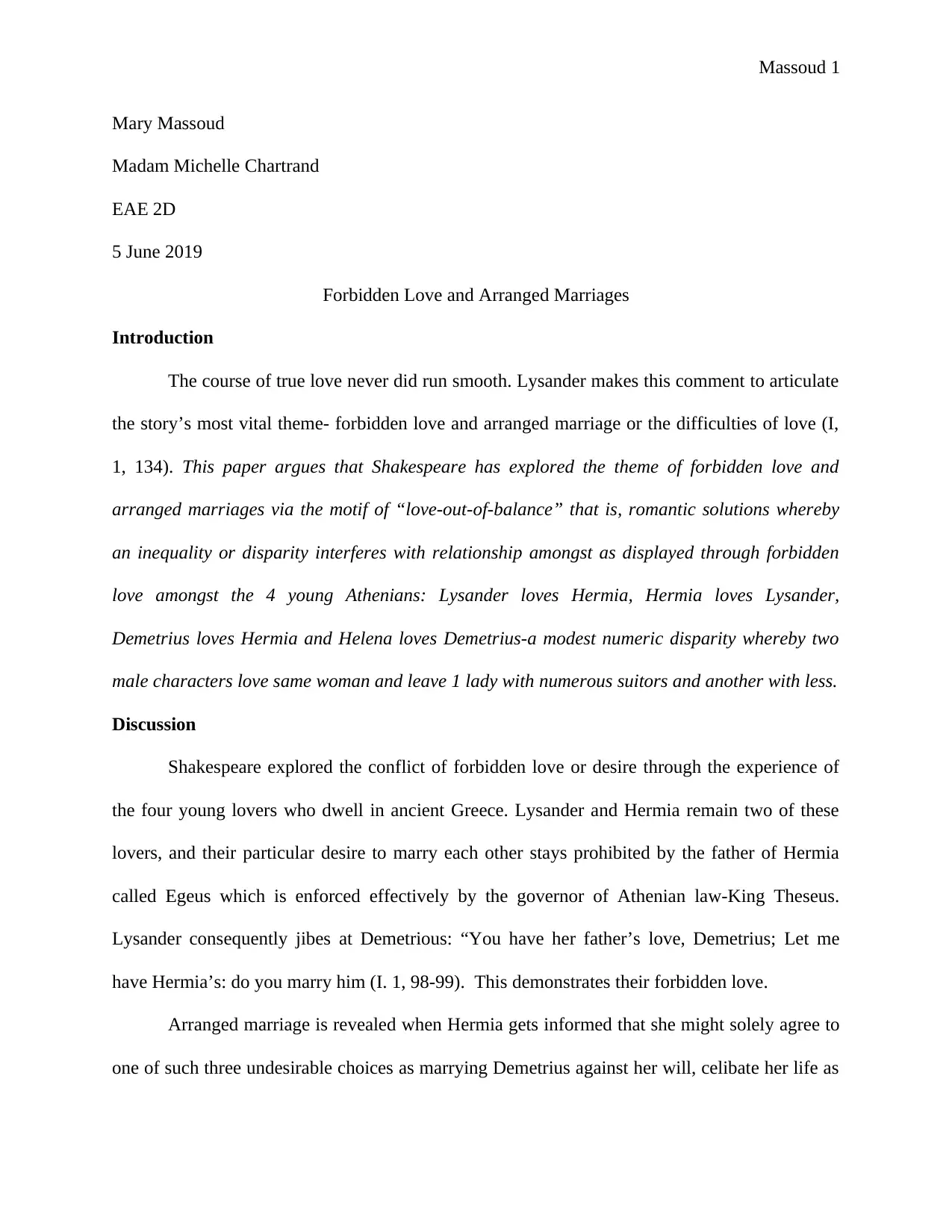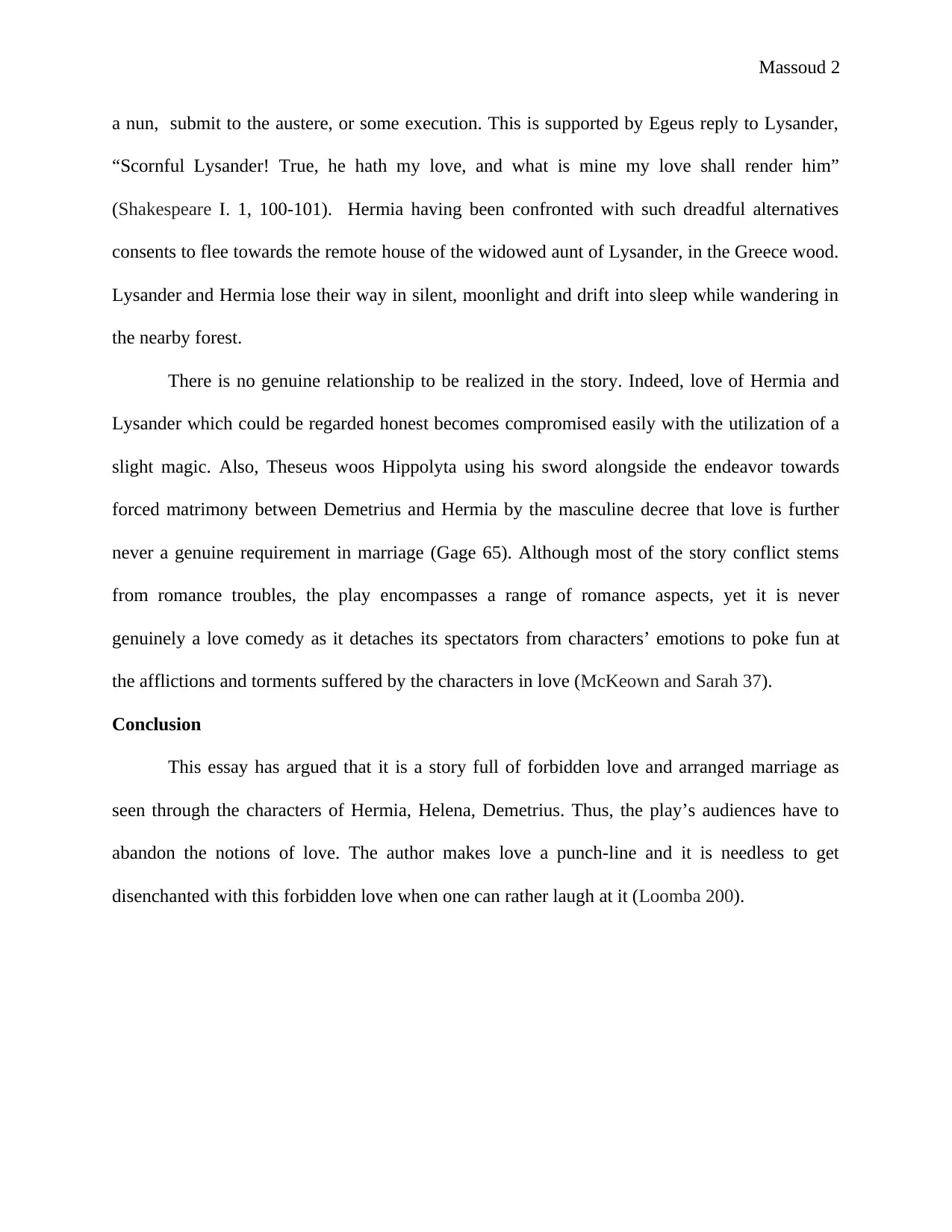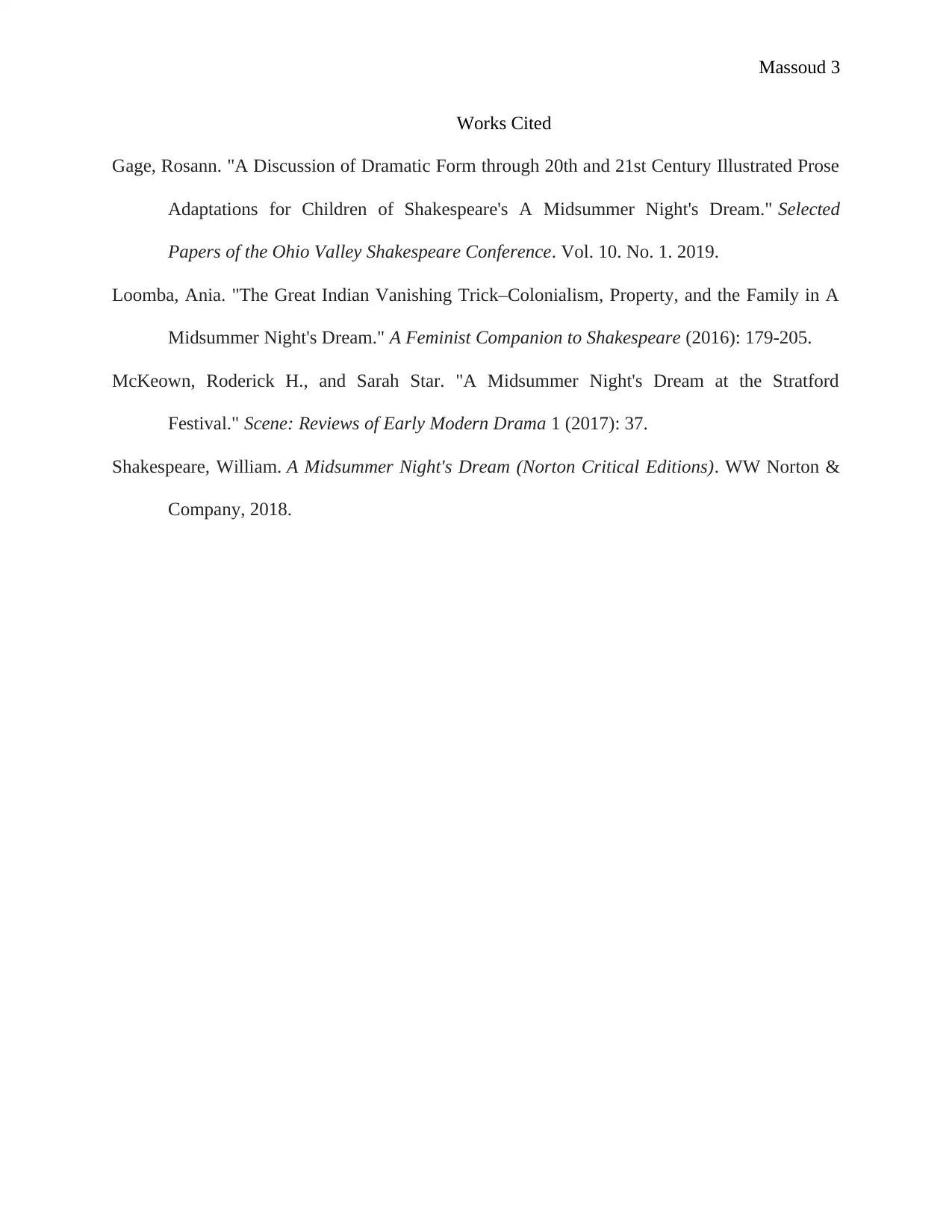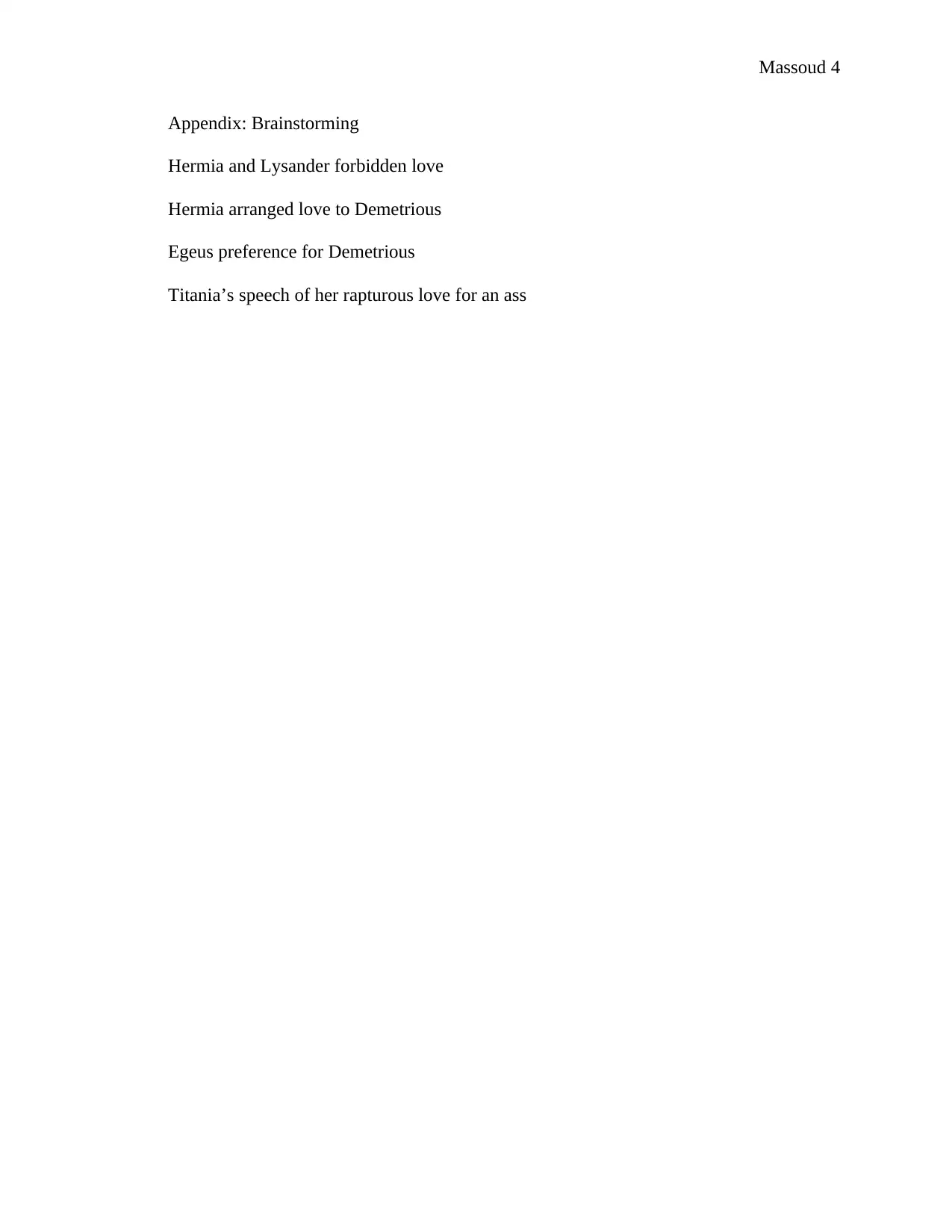EAE 2D: Forbidden Love and Arranged Marriages in Shakespeare's Play
VerifiedAdded on 2023/01/11
|4
|744
|80
Essay
AI Summary
This essay examines the themes of forbidden love and arranged marriages in Shakespeare's A Midsummer Night's Dream, focusing on the conflicts faced by the young lovers, Hermia, Lysander, Demetrius, and Helena. The analysis explores how societal expectations and parental control, particularly Egeus's influence, create obstacles for the protagonists. The essay uses the motif of "love-out-of-balance" to illustrate the disparities and inequalities that interfere with the relationships. The essay also touches upon arranged marriages and the limited choices given to the characters. It argues that Shakespeare explores the difficulties of love through these characters and their experiences, ultimately leading the audience to abandon notions of love and laugh at the characters' afflictions. The essay includes citations from Shakespeare's play and relevant literary sources.
1 out of 4






![[object Object]](/_next/static/media/star-bottom.7253800d.svg)